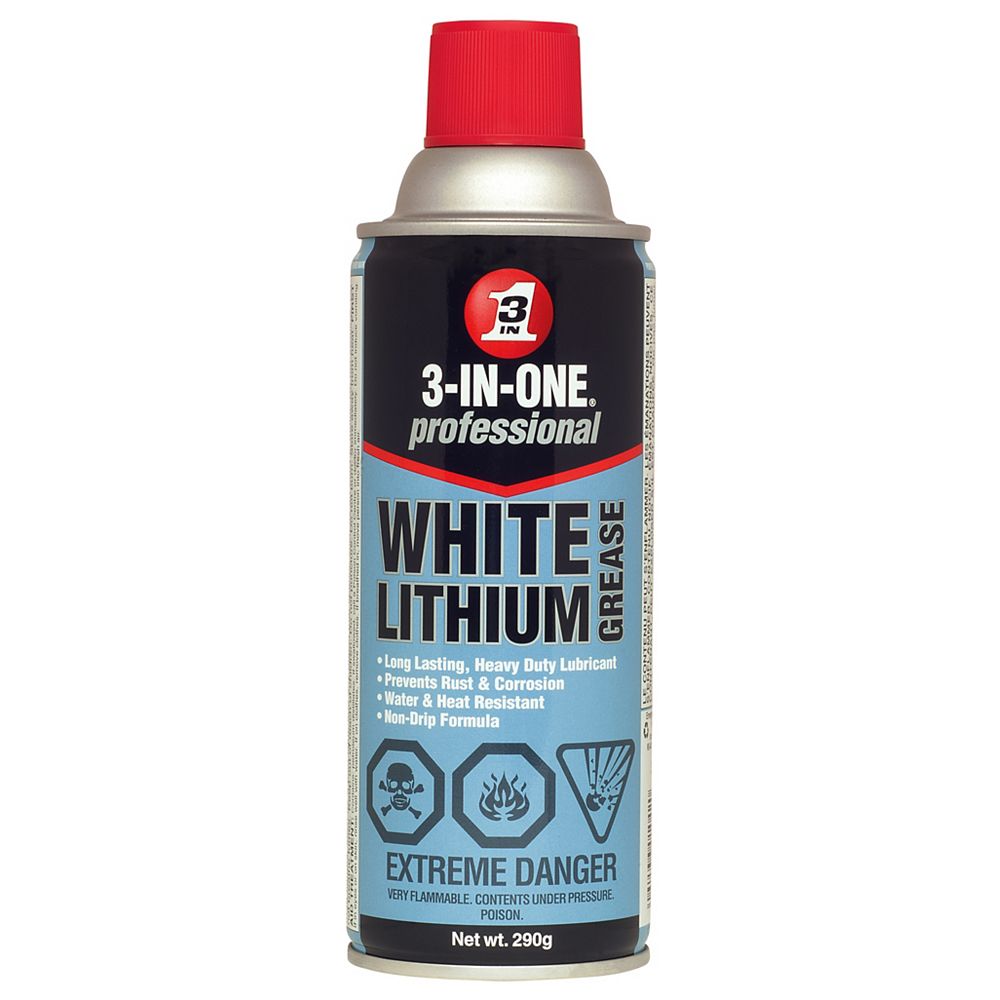Silicone Vs White Lithium Grease


Use a silicone or Teflon spray ONLY. DO NOT use grease, oil,lithium or WD 40. Grease and Lithium are thick type lubricants and are designed to be applied manually to flat or almost flat friction surfaces. Grease and Lithium can also attract dirt which can work its way into the mechanisms and cause wear. Silicone grease is a thickened silica compound that’s formulated to provide lubrication and corrosion resistance. It’s often used to replace oil-based greases that attack rubber components.
White Lithium Grease Vs Silicone Spray
Some engineers see lubricants as a straightforward, messy ancillary of the industrial age. However, much like rolling-element bearings themselves, lubrication is an ancient technology that’s highly engineered in modern forms. In fact, engineers have used fluids to reduce friction thousands of years, but the advent of the oil industry in the late 19th century spurred modern bearing lubrication. Today, bearing lubricants serve several functions:
Creating a barrier between rolling contact surfaces
Creating a barrier between sliding contact surfaces
Protecting surfaces from corrosion
Sealing against contaminants
Providing heat transference (in the case of oil lubricant)
Lubricants take the form of either oil or grease. Oil lubricants are most common in high speed, high-temperature applications that need heat transfer away from working bearing surfaces. Bearing oils are either a natural mineral oil with additives to prevent rust and oxidation or a synthetic oil. In synthetic oils the base is usually polyalphaolefins (PAO), polyalkylene glycols (PAG) and esters. Although similar, synthetic and mineral oils offer different properties and are not interchangeable. Mineral oils are the more common of the two.
The most important characteristic when specifying oil for a bearing is viscosity. Viscosity is a measure of a fluid’s internal friction or resistance to flow. High-viscosity fluids are thicker like honey; low-viscosity fluids are thinner like water. Engineers express fluid resistance to flow in Saybolt Universal Seconds (SUS) and centistokes (mm2/sec, cSt). The difference in viscosity at different temperatures is the viscosity index (VI). An oil’s viscosity is correlative to the film thickness it can create. This thickness is crucial to the separation of the rolling and sliding elements in a bearing. Bearings in some applications use oil, but grease is the lubricant of choice for 80 to 90% of bearings.
Grease consists of about 85% mineral or synthetic oil with thickeners rounding out the rest of the grease volume.
The thickeners are usually lithium, calcium or sodium-based metallic soaps. Formulations for higher-temperature applications often include polyurea. The higher viscosity of grease helps contain it within the bearing envelope. The most important considerations when choosing a grease are the base oil viscosity, rust-inhibiting capabilities, operating temperature range and load-carrying capabilities.
Check out the 5 best bearing lubrication videos on the internet here.
Over time, car doors can start to creak and squeak. It’s a common problem, but it’s incredibly annoying. Luckily, the best lubricants for car door hinges can get your hinges working smoothly again, so that you can swing them open and shut without unwanted noise. And lubrication has other benefits beyond simple noise reduction: It can help to prevent additional issues, such as the buildup of rust.

What are the different types of lubricants for car door hinges?
Is Lithium Grease Dielectric
White lithium greaseis a thick and heavy grease that repels water. It holds up really well in harsh weather conditions, and since it’s designed specifically for metal, it’s a good choice for car door hinges.
On the other hand, classic WD-40is lighter in terms of lubrication (so if you’re looking for a heavy-duty option, it may not be the best pick), but like white lithium it can help to unstick areas and remove rust. If you choose to use WD-40 on your door hinges, make sure that you open and close the door a few times to work it into the hinge mechanism.
There are other types of lubricants available, including silicone spray and a graphite lubricant, but these are not the best options for car door hinges. Silicone spray is ideal for areas that have non-metal parts (like nylon or plastic) and a graphite lubricant is mostly used for locks.
Silicone Vs White Lithium Grease
Get your car door hinges back to their former glory with these three lubricants that Amazon reviewers swear by.